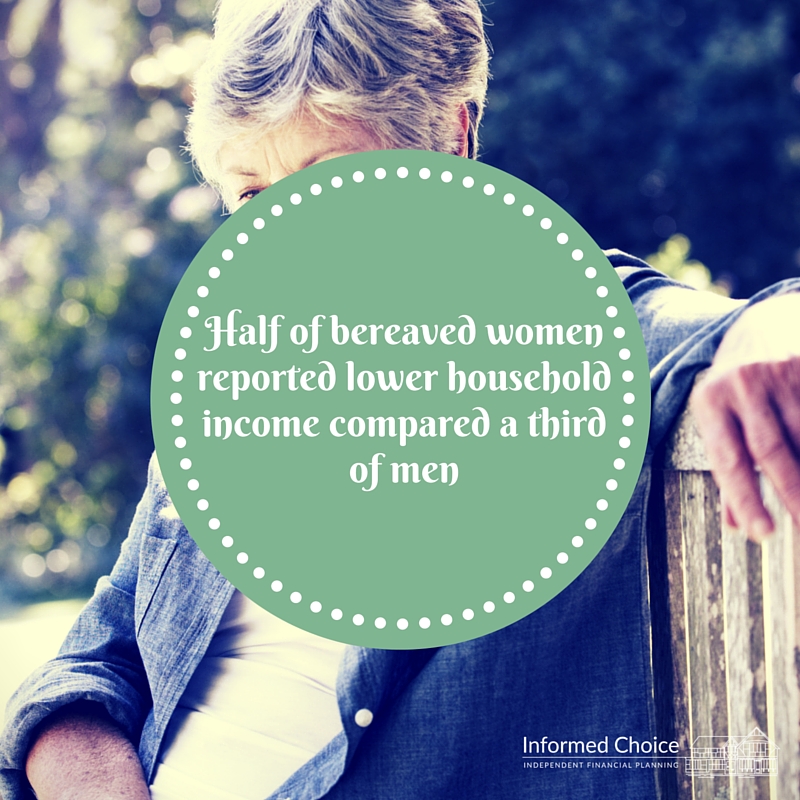 Women are more likely to suffer the financial and practical implications of losing a partner, according to new research.
Women are more likely to suffer the financial and practical implications of losing a partner, according to new research.
Royal London’s Losing a Partner report found that half of bereaved women reported lower household income compared a third of men.
Women also reported lower disposable income as a result of bereavement than men.
According to Royal London, the financial impact of bereavement leads to a wide variety of responses, with women again more likely to report having to take action.
They found that four in ten women had to cut back on discretionary spending such as holidays, compared to a third of men.
Women were more likely to draw on savings or take out a loan, and more likely to spend less on household bills (including utilities) and less on everyday items.
One of the more extreme financial impacts following the loss of a partner was downsizing or moving house.
While just one in ten men downsize or move house, two in five women are forced to move home following a bereavement.
The practical impacts are a consequence of the tendency of all couples to split household tasks between them, often along traditional lines.
Royal London’s research found evidence of this traditional approach to splitting household tasks, discovering that bereaved men were overwhelmingly likely to say that their partner took charge of cooking, cleaning, washing and ironing before they died.
In comparison, bereaved women said that their partner had taken charge of car maintenance, dealing with tradespeople, DIY, driving and technology.
The sudden loss of this expertise leaves the surviving partner having to deal with these practical matters for the first time, while also coping with the emotional loss.
[tweet_box]Half of bereaved women reported lower household income compared a third of men[/tweet_box]Overall, one in five women surveyed said they had made five or more financial changes, compared to only one in ten men.
The financial impacts for both sexes last longer than expected, with a quarter reporting lower disposable income in the first year after bereavement, rising to two in five people one to three years after.
Even three to five years after losing a spouse or partner, around a third still report lower disposable income.
Although losing a partner affects everyone, those reporting the least impact were those with the most plans in place.
Those with specific plans in place, including life insurance, funeral plans and lasting power of attorney, were least likely to report reduced disposable income, lower savings or increased debt.
Simon Cox, spokesperson at Royal London, said:
“The research shows a clear bereavement gender divide, with women faring the worst.
“While we can’t prepare for every eventuality, and as difficult as it may be to talk about dying, having plans in place will help loved ones left behind be more financially secure and manage the everyday chores and tasks.”
Here at Informed Choice, we are able to model the financial consequences of the loss of a partner by building ‘disaster scenarios’ into the lifetime cash flow forecasts we create for our clients.
This modelling of disaster scenarios is a very effective way to graphically illustrate how the death of a partner would impact household finances in the future.
Whilst talking about death is never easy, it is very important and raising the subject as part of the creation of a Financial Plan can make it easier.


